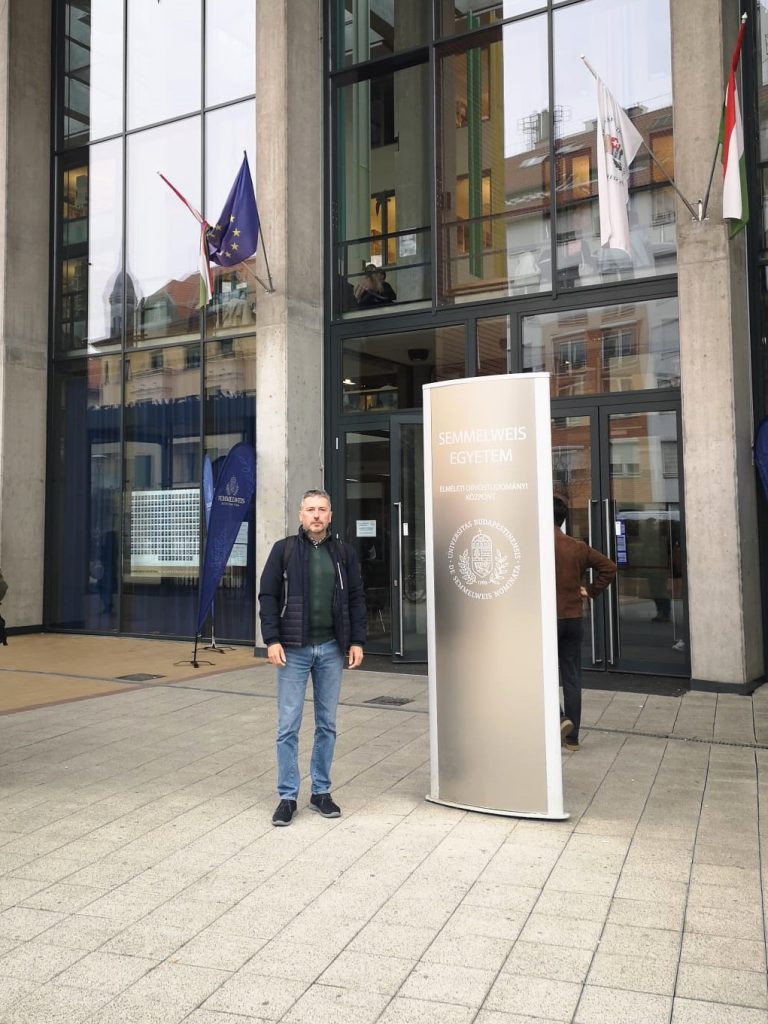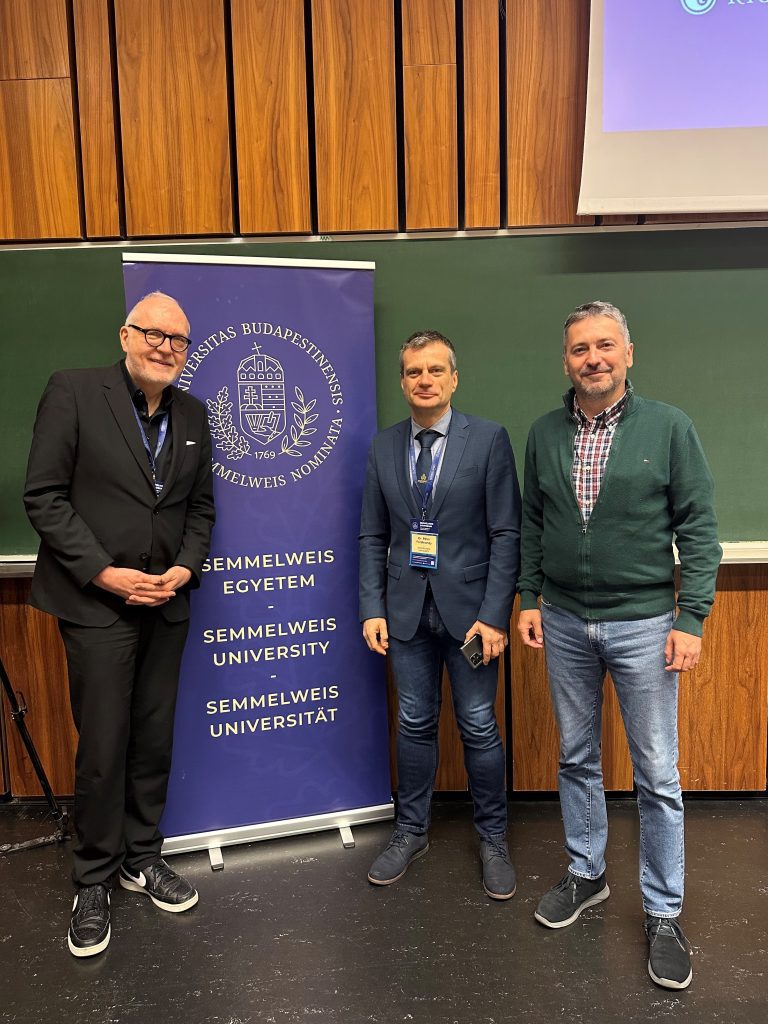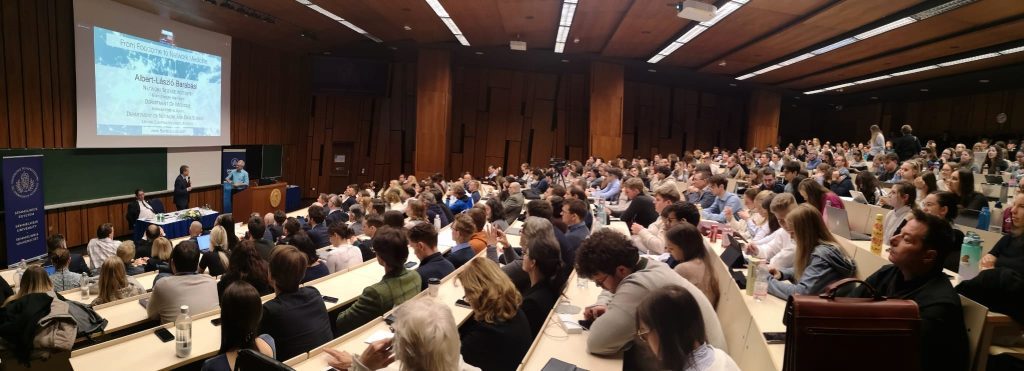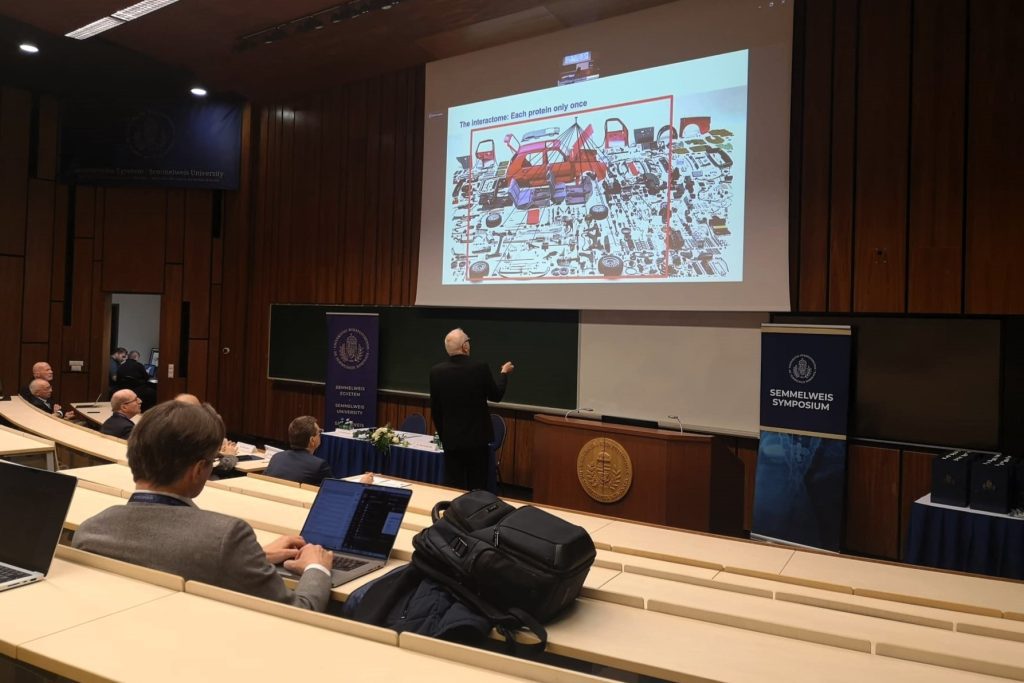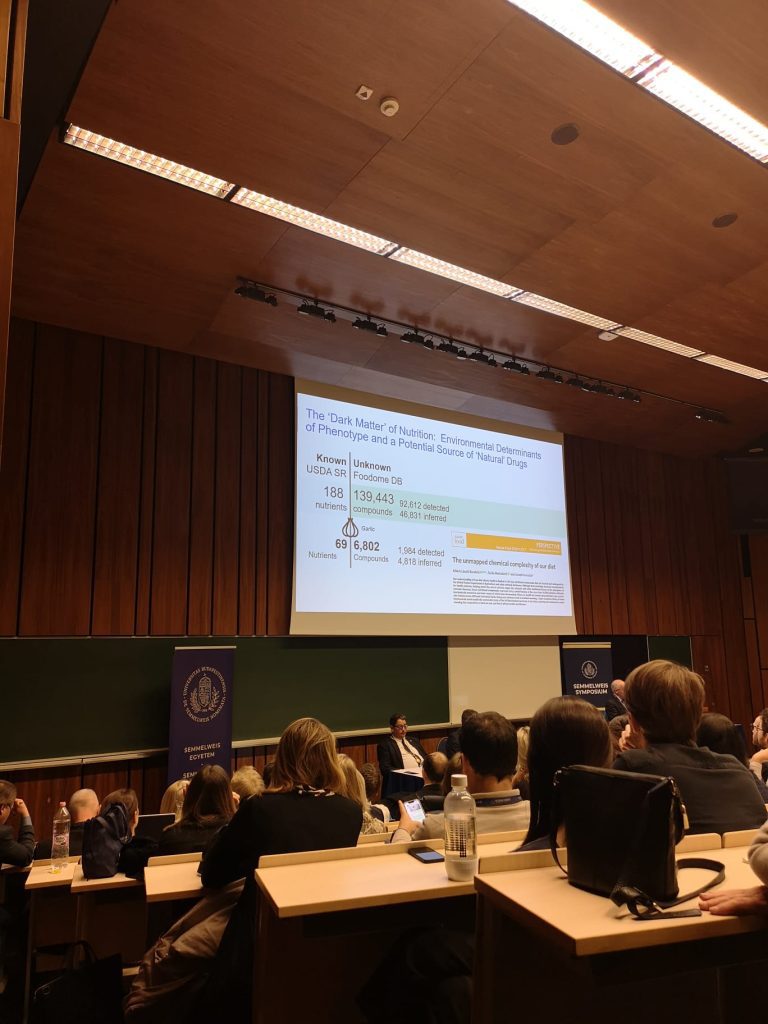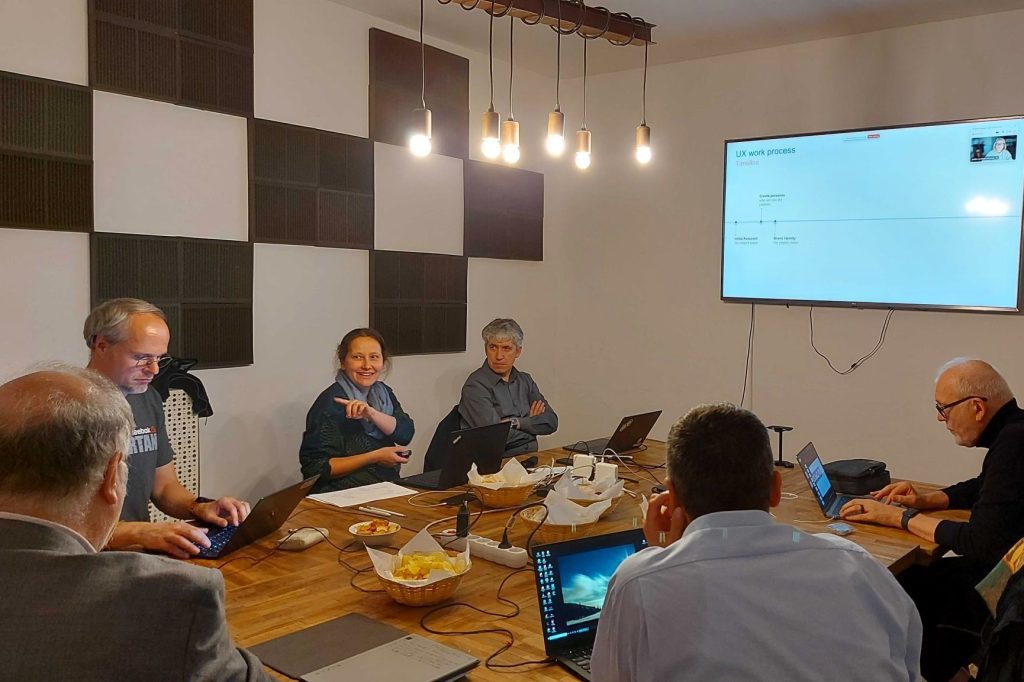R&D shines in the spotlight in Budapest
Last week, we attended prestigious scientific, R&D-oriented events in Budapest. The 32nd Semmelweis Symposium focused on network medicine for future healthcare, mapping the most outstanding research results and breakthroughs in network sciences, systems biology and human dynamics. The multi-faceted approach to bioinformatics research pointed back to the EU summit in Budapest in early November, where R&D was given increased attention. The symposium was also an excellent opportunity to organize a face-to-face meeting within the REPO4EU project, resulting in crucial decisions. Let’s see what these meetings were all about.
32nd Semmelweis Symposium
Thought-provoking presentations used different approaches to examine the human genome map and interactions within it. In the opening session, physicist and network science researcher Barabási Albert László introduced the notion of “Foodome”, and presented research results on active food substances and their effect on the human body. This unexplored horizon draws attention to how our food choices—whether conscious or unconscious—can impact our health, with our liver as the first target, potentially causing or influencing certain diseases or even leading to death.
Thereafter, our esteemed project partner in REPO4EU, Harald H.H.W. Schmidt, in his Keynote presentation, discussed a paradigm shift in systems medicine— “The End of Medicine as We Know It.” In the context of this paradigm shift, he pointed out the approach of interpreting diseases and their root causes, mentioning the low effectiveness of certain drugs as a specific example.
Hermann Mucke from H.H. Pharma Consultancy shared ideas on AI-supported networked knowledge management for drug repurposing, the importance of patents and peer review papers within the useful tool Reposcope– the landscape of current drug repurposing opportunities.
Emre Guney from Stalicla was also a presenter in the drug development and repurposing session and provided insights into transnational precision medicine in neuropsychiatric disorders.
Jan Baumbach, also our prominent partner in several projects, examined the essential data analysis opportunities for exploring the human genome and interaction sequences. He highlighted the current capabilities of quantum computing and its technological applicability.
AI’s unexploited potential supports all these paradigm shifts, digital predictive modelling and the spread of services, urging the use of LLMs in medical research, even though these are based on ML and the inherent resource-demanding digital infrastructures. With this prestigious event, offering the opportunity to showcase the most significant EU-level research projects and results, Semmelweis University has demonstrated its openness, competence and innovative approach to these new horizons.
Many thanks to Péter Ferdinándy for the invitation, the excellent organization, the university’s active partnership in the dAIbetes project and the professional support given to the REPO4EU project.
The Budapest Declaration in alignment with R&D pursuits
The innovative approach to bioinformatics research highlights the recent informal EU Council meeting in Budapest, where a strong emphasis on research and development (R&D) emerged. The Budapest Declaration marks a new cornerstone in the EU’s objective to enhance its global competitive stance.
At the heart of the new European Competitiveness Deal is a bold vision to position the EU as a leader in research and innovation, particularly in disruptive technologies. Supported by Enrico Letta and Mario Draghi’s research, EU leaders are committed to closing the innovation and productivity gap to dedicate 3% of GDP to R&D by 2030. Letta’s “fifth freedom” proposal was named and considered in the Declaration, integrating research, innovation, data, and education within the Single Market alongside the four fundamental freedoms: the free movement of goods, services, people, and capital. The EU aims to lead sustainable innovation through public-private partnerships supporting SMEs and startups, driving societal progress and technological advancement. This deal is also a call to action: “Business as usual is no longer an option.“
REPO4EU meeting in Budapest
Budapest continued to host R&D events and we, the Egnosis team, contributed our part to this. The Semmelweis Symposium in Budapest provided an excellent opportunity for the REPO4EU partners to meet. Thus, Egnosis proposed and organized a Platform Stakeholders Group technical and management decision workshop.
One of the main reasons for the meeting was to form the PSG and decide on members and tasks. The following two-day intensive workshops validated user flows and agreed on the platform structure and resource access. We also dived deeper into enabling LLMs and mapping potential interactions with EU/global networks.
To conclude, many thanks to all participants for their active involvement, although they had a tough job understanding the complex technical challenges. Now, let’s orchestrate the next movement by merging the results into the platform development strategy and execution plan. Take note, world—we are on track!
